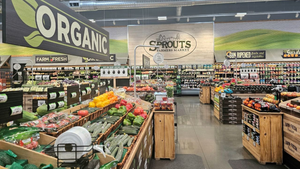Some 70% cast a vote to keep South Dakota’s grocery tax in placeSome 70% cast a vote to keep South Dakota’s grocery tax in place
The move differs from other states, like Illinois and Oklahoma, which both eliminated pandemic-era grocery taxes this year

A measure on South Dakota’s ballots which would have repealed the state’s grocery tax was rejected on Tuesday by nearly 70% of voters.
State imposed grocery taxes became a country-wide phenomenon during the pandemic, as a way to generate additional revenue. Several states, like Illinois and Oklahoma, have moved to eliminate the taxes this year, and four other states—Kansas, Idaho, Tennessee, and Virginia—reduced the tax.
The measure in South Dakota, IM-28, would have added the following language to current state law: “Notwithstanding any other provision of law, the state may not tax the sale of anything sold for human consumption, except alcoholic beverages and prepared food. Municipalities may continue to impose such taxes.”
There may have been confusion over the meaning of “human consumption” because South Dakota state law does not define the term.
If passed, the measure, which the South Dakota Municipal League and several mayors across the state opposed, would have reduced sales tax revenues by almost $124 million annually.
“The defeat of IM-28 once again demonstrates support for public education,” said Loren Paul, president of the South Dakota Education Association, in a statement. “IM-28 should have slashed school budgets or made local property taxes skyrocket. We are grateful that voters took time to educate themselves on just how bad IM-28 was for South Dakota.”
Earlier this year, the state of Illinois decided to eliminate its grocery tax, much to the dismay of municipalities. The change will take effect in 2026.
The Illinois Municipal League opposed the plan to cut the 1% tax because it would cost cities millions in revenue. The biggest beneficiaries received as much as $4 million a year.
About the Author
You May Also Like




.webp?width=300&auto=webp&quality=80&disable=upscale)

